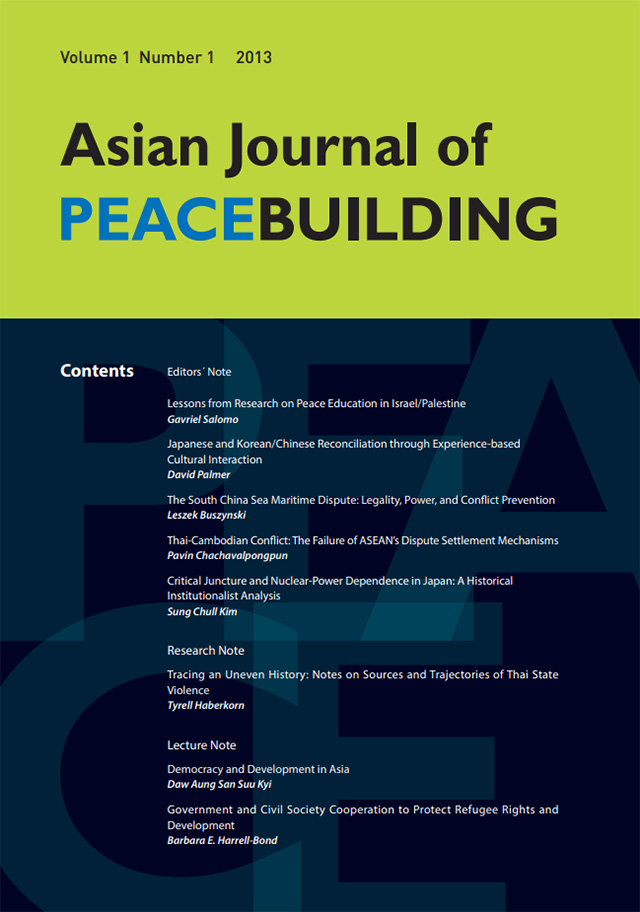- The institution of nuclear power in Japan appears to be drifting; nevertheless it persists. For the past 60 years, conservative politicians, technologists, and electric companies have acted in concert, for different reasons, to achieve a full nuclear fuel cycle: specifically technology for reprocessing and uranium enrichment. Their pursuit has eroded the bottom-line spirit of peaceful use; to be sure, it has been excessively ambitious for Japan’s status as a non-nuclear-weapon state. The mastering of the full nuclear fuel cycle has resulted in a competency trap, excluding or delaying development of alternatives to nuclear power. Furthermore, this situation has heightened nuclear power’s sunk costs. The critical conjuncture of the March 11, 2011 incident has had a limited impact only. Anti-nuclear activists, the weakest concerned actor, try to dramatize their movement for “exit from nuclear,” but they have failed to bring about electoral changes.
Back Issues
RESEARCH ARTICLE
Critical Juncture and Nuclear-Power Dependence in Japan: A Historical Institutionalist Analysis
Sung Chull Kim pp. 87-108
PDF Download

